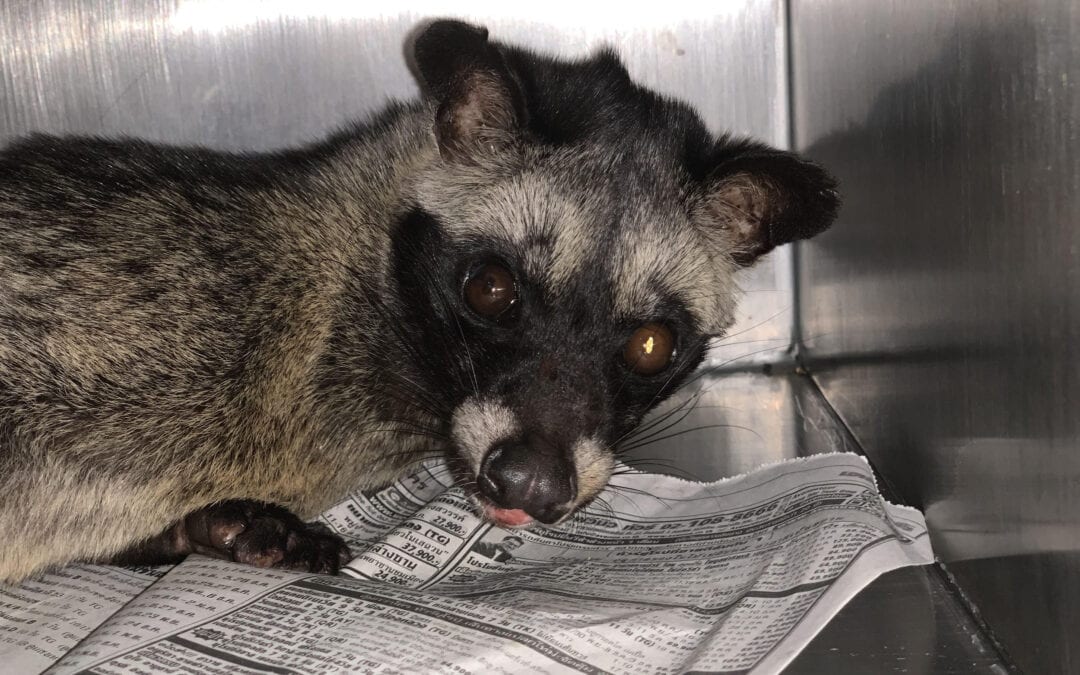There is rarely a dull moment at Lanta Animal Welfare, and our staff always has to be prepared for the unexpected.
That might be a monkey on the roof, a playful puppy escaping his or her area and having a little run around to see what’s going on or, in the case of our veterinary clinic, a wild animal arriving in need of emergency treatment.
That was the case recently when a civet, a wild cat, was brought into the clinic having been hit by a car, leaving him with paralysis in his back legs.
Sightings of civets on Koh Lanta are extremely rare. LAW’s Clinical Director, Helen Guy, had previously seen only two in her five years on the island.
Having in the past treated animals as diverse as fishing cats (a wild version of a Bengal cat), goats, monkeys and monitor lizards, however, nothing really fazes LAW’s medical team.
“The treatment is very similar whether it’s a dog or a cat hit by a car, or a wild animal like a civet,” said Helen. “It involves lots of supportive care.
“He’s receiving steroids to try to help with the inflammation in his nerves, because there is a spinal injury that didn’t show up on the initial X-ray. Not everything always does, and it may be that this takes quite a long time for him to recover.
“He is getting stronger and there are signs of progress, although the fact there is no feeling whatsoever in his tail is not a good sign. He just needs time to see if he can get better.”
Where the treatment does differ, however, is in the handling of the animal. Dealing with a wild cat like a civet is most certainly not the same as dealing with a domestic cat.
“It’s very different,” added Helen. “That’s why he’s in a cage with a cover over it. He doesn’t like being handled so we’re very careful not to cause him any unnecessary stress, because that could kill him.
“At the point he was brought in, he was semi-conscious, and that will be the only reason the lady who brought him to us was able to bundle him into her car because civets are normally quite aggressive.
“We’re very mindful when we clean the cage, we try to move him with a net or a box, so we’re not actually touching him and unsettling him. It’s better and safer for him, and also for us.”
Did You Know?
The world’s most expensive coffee, Kopi luwak, is made from civet poo. Or, to be more precise, it’s made from coffee beans that are partially digested and then pooped out by the civet. The price of Kopi luwak ranges from $35-$100 for a single cup.
If you would like to support the work of our veterinary clinic, please click here to donate
Want the latest news from Lanta Animal Welfare? Sign up to our newsletter here

